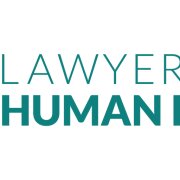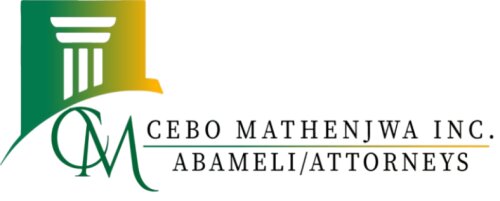Best Native People Lawyers in Johannesburg
Share your needs with us, get contacted by law firms.
Free. Takes 2 min.
List of the best lawyers in Johannesburg, South Africa
About Native People Law in Johannesburg, South Africa
Native People in Johannesburg, South Africa are part of a diverse cultural landscape that includes various indigenous groups such as the Khoi, San, and others who have historical ties to the region. The field of Native People law pertains to the rights, recognition, and legal affairs involving these indigenous communities. This encompasses issues related to land rights, cultural preservation, and social justice. Over the years, there have been efforts to address the historical marginalization and socio-economic challenges faced by Native People through both legislative and social initiatives.
Why You May Need a Lawyer
Legal issues concerning Native People can be complex due to the intersection of customary law, national laws, and international human rights standards. Here are some common situations where you might need legal help:
- Land Claims: Indigenous communities may need legal assistance to reclaim ancestral lands or to negotiate land use agreements.
- Cultural Preservation: Legal protection might be necessary to safeguard cultural heritage and practices that could be threatened by development or legislative changes.
- Social Services: Access to social services and benefits can sometimes require legal intervention to ensure equitable treatment.
- Discrimination or Rights Violations: Instances of discrimination or violation of rights may need legal action to address grievances.
- Governance and Representation: Legal expertise can be crucial in matters of governance and self-representation within indigenous communities.
Local Laws Overview
In Johannesburg, and South Africa as a whole, several key aspects of law impact Native People:
- Constitutional Rights: The South African Constitution provides for the protection of cultural, religious, and linguistic communities, which includes Native People.
- Restitution of Land Rights Act: This legislation provides the legal framework for land restitution and redistribution to historically disadvantaged groups, including Native People.
- Traditional Leadership and Governance Framework: Recognizes the role of traditional leadership in the governance of indigenous communities and outlines their duties and powers.
- Promotion of Equality and Prevention of Unfair Discrimination Act: This law seeks to prevent and prohibit discrimination, ensuring equality for all communities, including Native People.
Frequently Asked Questions
Who are considered Native People in Johannesburg?
In Johannesburg, Native People often refer to the indigenous groups with historical roots in the region, notably the Khoi and San people.
What rights do Native People have under South African law?
Native People have constitutional rights related to cultural preservation, land restitution, and protection against discrimination. Additional rights might be specified under various local and national laws.
How can I make a legal claim for restitution of ancestral land?
To make a legal claim, you must usually present historical evidence of land ownership or occupation. Seeking advice from a lawyer specializing in land restitution can guide the process.
What role do traditional leaders play in Native People law?
Traditional leaders are recognized under South African law and have specific roles in governance and cultural activities, governing their communities according to customary laws.
Can Native People access government support services?
Yes, Native People can access various government support services. If there is a challenge in accessing these services, legal assistance may be needed to resolve the issue.
What legal protections exist for indigenous cultural practices?
Legal provisions under South African law protect indigenous cultural practices from being exploited or infringed upon, ensuring cultural heritage preservation.
Are there any international guidelines on indigenous peoples' rights in South Africa?
Yes, South Africa is a signatory to international conventions such as the United Nations Declaration on the Rights of Indigenous Peoples, which provides additional guidelines.
How do I find a lawyer specializing in Native People law?
Look for legal professionals with experience in land rights, cultural preservation, and indigenous law, or contact advocacy organizations for recommendations.
What are the challenges faced by Native People in legal matters?
Common challenges include proving historical claims, lack of awareness of rights, and navigating complex legal systems.
Are there legal developments underway that could impact Native People?
Yes, legal reforms and land restitution cases are ongoing, so staying informed about these developments is crucial for Native People and their advocates.
Additional Resources
For further assistance and resources, consider reaching out to these organizations and bodies:
- Commission for the Promotion and Protection of the Rights of Cultural, Religious, and Linguistic Communities: A South African government body working to protect indigenous rights.
- Legal Resources Centre (LRC): Provides legal support and advocacy for issues related to human rights, including indigenous rights.
- South African Human Rights Commission (SAHRC): Offers resources and protection against discrimination and rights violations.
Next Steps
If you require legal assistance regarding Native People in Johannesburg, here’s how to proceed:
- Identify the specific legal issue or query you have.
- Contact a lawyer or legal firm that specializes in Native People law or related fields.
- Gather any necessary documentation or evidence related to your legal matter.
- Consider reaching out to advocacy organizations for additional support and resources.
- Stay informed on legal developments that could affect your case or concerns.
Taking these steps can help ensure that you receive the appropriate legal advice and support tailored to your situation.
Lawzana helps you find the best lawyers and law firms in Johannesburg through a curated and pre-screened list of qualified legal professionals. Our platform offers rankings and detailed profiles of attorneys and law firms, allowing you to compare based on practice areas, including Native People, experience, and client feedback.
Each profile includes a description of the firm's areas of practice, client reviews, team members and partners, year of establishment, spoken languages, office locations, contact information, social media presence, and any published articles or resources. Most firms on our platform speak English and are experienced in both local and international legal matters.
Get a quote from top-rated law firms in Johannesburg, South Africa — quickly, securely, and without unnecessary hassle.
Disclaimer:
The information provided on this page is for general informational purposes only and does not constitute legal advice. While we strive to ensure the accuracy and relevance of the content, legal information may change over time, and interpretations of the law can vary. You should always consult with a qualified legal professional for advice specific to your situation.
We disclaim all liability for actions taken or not taken based on the content of this page. If you believe any information is incorrect or outdated, please contact us, and we will review and update it where appropriate.
















